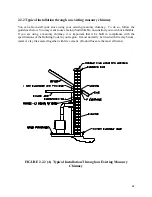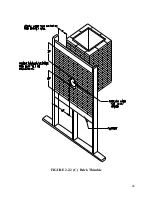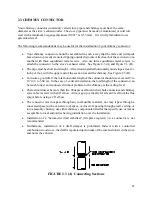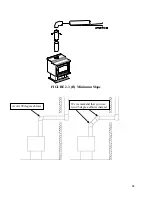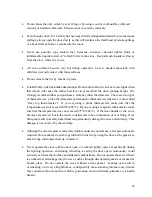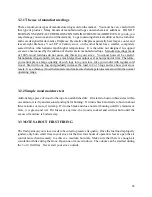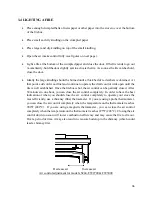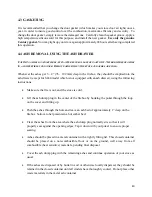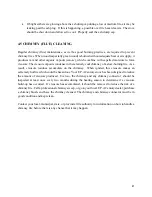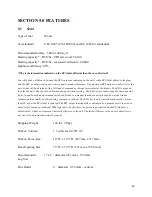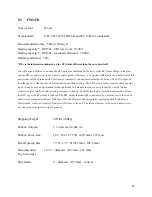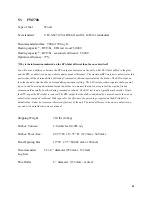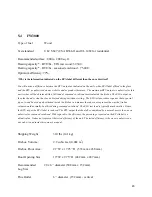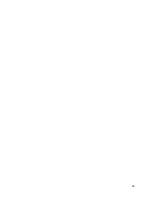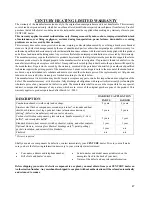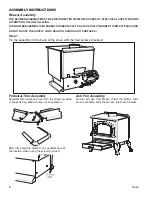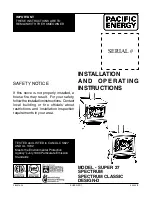
38
For the FW700 and the FW3000 model, we suggest that you operate it with the air control slightly
open (approximately 10%) to achieve an optimum efficiency. Make sure that you have a good fire
going and an adequate ember bed before you completely close the air control. Use a chimney
thermometer if necessary. Closing the air control too soon will lower combustion efficiency and may
cause the fire to die out.
In all Century appliances the addition of a blower is highly recommended to maximize your unit’s
efficiency.
3.6 FAN (BLOWER) OPERATION
If you have purchased and installed and optional fan (blower), allow the stove to reach operating
temperature (approximately one hour), before turning on the fan. The increased airflow from the fan
will cool the firebox and affect the start-up combustion efficiency if the fan is turned on too quick.
CAUTION
:
ENSURE THAT THE FAN
’
S POWER CORD IS NOT IN CONTACT WITH ANY SURFACE OF THE TTOVE
TO PREVENT ELECTRICAL SHOCK OR FIRE DAMAGE
.
DO NOT RUN THE POWER CORD BENEATH THE STOVE
.
Summary of Contents for FW2470
Page 26: ...25 FIGURE 2 2 2 B Factory Built Thimble ...
Page 27: ...26 FIGURE 2 2 2 C Brick Thimble ...
Page 47: ...46 ...

